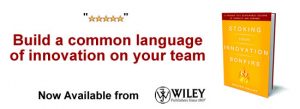Google + Nest: Benefit Trumps Fear
 News that Google is acquiring Nest Labs, a hardware tech startup, got the Internet buzzing with rumors, speculations and a healthy amount of dissent towards privacy concerns that will materialize when Google gains access to data coming from your home’s Nest thermostat or smoke detector.
News that Google is acquiring Nest Labs, a hardware tech startup, got the Internet buzzing with rumors, speculations and a healthy amount of dissent towards privacy concerns that will materialize when Google gains access to data coming from your home’s Nest thermostat or smoke detector.
Some Nest owners went as far as touting that they are ‘tearing their thermostat off the wall’ along with a great variety of jokes that poke fun at all the things that Google can now do with the data they get from your home (like serve ads on your thermostat or make you watch a 5-second ad before changing the temperature).
There’s already plenty of speculation and rumors circulating as to why Google acquired Nest for $3.2B so I didn’t want to add to the vortex of information that’s circulating. Instead, I wanted to look deeper at the privacy angle of this transaction and better understand if there’s a valid reason as to why folks are starting to feel paranoid as Google creeps into our homes, vehicles and workplaces.
 My first argument is that if Google didn’t buy Nest, Nest would have likely found their own ways of further monetizing the value of their platform and the data stemming from it (if it hasn’t already). Profiting from hardware is merely one way to monetize and if you look at the big picture, there’s a lot of desired data and insights that can be derived from Nest’s devices that could be worth (a lot) of money to someone.
My first argument is that if Google didn’t buy Nest, Nest would have likely found their own ways of further monetizing the value of their platform and the data stemming from it (if it hasn’t already). Profiting from hardware is merely one way to monetize and if you look at the big picture, there’s a lot of desired data and insights that can be derived from Nest’s devices that could be worth (a lot) of money to someone.
Second, many utilities are already closely monitoring energy consumption through smart meters and their own connected devices in your home. There is an estimated 50 million homes in the US with smart meters, collecting information that could reveal how many people live in a home, their daily routines, changes in those routines, what types of electronic equipment are in the home, and other details. Recent studies have shown that consumers are warming up the benefits of smart metering and utilities are facing considerably less resistance due to privacy concerns.
Third, you probably couldn’t imagine how much Google already knows about you. If you use the search engine, an android device, Gmail or any of their other popular services on a regular basis, Google already knows a ton of information about things such as your interests, location, demographics, search trends, your friends, etc.
Nowadays, these are the trade-offs for the convenience of using any platform or service. If we can get beyond thinking about Google’s business model as just advertising and marketing (and yes, I am aware that Google still has ~95% of their revenues come from advertising), having more data on an integrated platform will enable information and services to be delivered with better and more relevant context that will benefit consumers.
Clearly, there are some boundaries when it comes to personal privacy; however, as we increasingly opt-in in to sharing our information, personally, I believe some of the benefits and convenience we stand to realize will outweigh the negatives of this deal and likely others to come.
However, thankfully, what still remains is consumer choice and your ability to opt-out should you decide the negatives outweigh the positives. The choice is yours.
image credit: droid-life.com/
Wait! Before you go…
Choose how you want the latest innovation content delivered to you:
- Daily — RSS Feed — Email — Twitter — Facebook — Linkedin Today
- Weekly — Email Newsletter — Free Magazine
 Reuven Gorsht is Vice President, Customer Strategy at SAP where he leads the company’s Global Go-to Market Initiatives. His leadership in operations and strategy in the technology and professional services industries, is the result of skillful project management and business transformations. He speaks at industry conferences and has been regularly quoted in Forbes and BusinessWeek.
Reuven Gorsht is Vice President, Customer Strategy at SAP where he leads the company’s Global Go-to Market Initiatives. His leadership in operations and strategy in the technology and professional services industries, is the result of skillful project management and business transformations. He speaks at industry conferences and has been regularly quoted in Forbes and BusinessWeek.
NEVER MISS ANOTHER NEWSLETTER!
LATEST BLOGS
What happened to smart advertising?
For a television advertisement to be effective, do you need to lay out everything for the viewer and make it obvious? Or, is an advertisement more memorable if you let the viewer connect the dots themselves? Here are two examples of television advertisements that promote the product in a slightly more intellectual/emotional way that promotes engagement and curiousity:
Read MoreInvention versus Innovation
Continuous innovation requires that innovation is placed at the center of the organization and that all parts of the organization are changed to support it. To effectively place innovation at the center of the organization, people must know what innovation is, what it looks like in their organization, and how they can contribute. Most people easily confuse invention with innovation, and wrongly chase invention in the name of innovation.
Read More




Hi Reuven.
We (a group of innovators in Israel) are working on amazing startup that might fit into SAP strategy.
Dr. Ben Nachman
ben4innovation@gmail.com